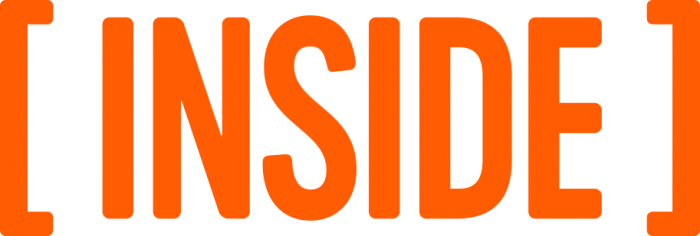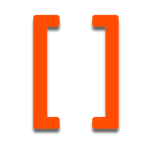Hey no-coders!
I had the incredible opportunity to chat with the co-founder of Bubble, Emmanuel Straschnov, over the holidays. For the unfamiliar, Bubble is a popular no-code tool you can use to build SaaS products, social media sites, marketplaces, CRMs, and so much more, which a number of startups have used to launch and achieve success.
We touched on several themes, including:
- Growth and success tips for both no-code business and tool creators
- What exciting new things Bubble has planned for 2021 and his predictions for no-code as an industry
- How he draws inspiration
- Tips for learning Bubble and no-code
- Advice for current and aspiring web developers as no-code starts to render some of their olds job obsolete
- The importance of diversity
... and so much more. So without any further ado, here are the highlights from our chat!
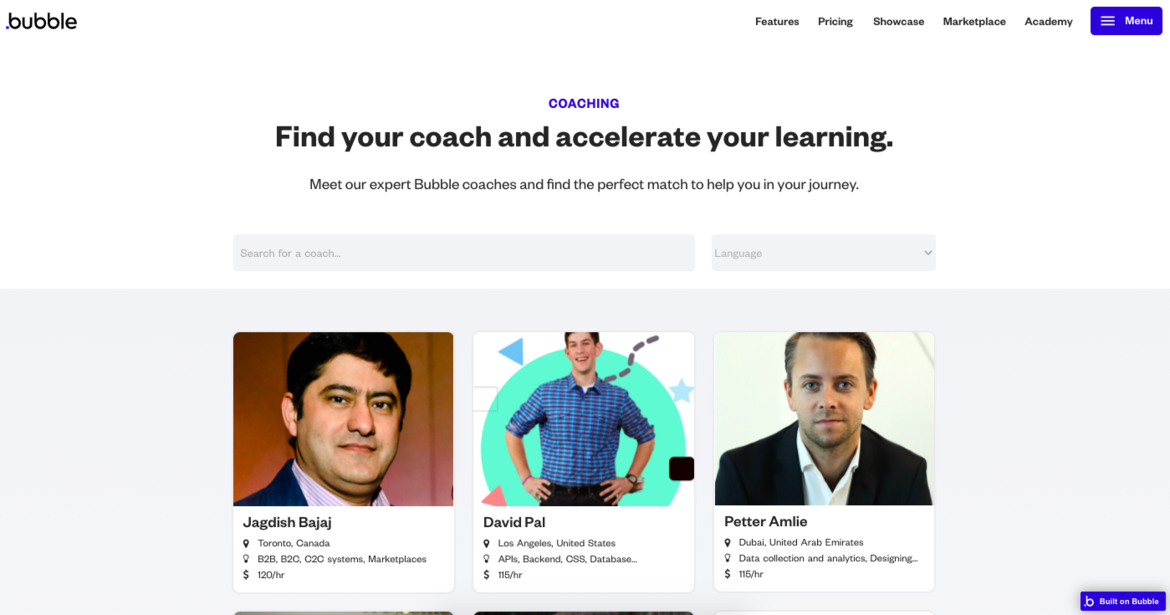
WHAT’S AHEAD FOR 2021:
Exciting news for freelancers: Bubble's looking at launching a bootcamp for you!
Bubble is looking at building a bootcamp that trains freelancers, sometime in Q1, Emmanuel told me. “We know there is a big shortage of talent, all our agencies tell us this, so we want to help there,” explains Emmanuel.
What’s more, the company's considering incorporating a referral program to the best agencies they're connected to. “Someone who would do very well on the bootcamp could start working there pretty quickly, given the shortage,” says Emmanuel.
At the same time, Bubble just launched a coaching marketplace, and will be releasing a new video every month in addition to redesigning the Bubble Academy page.
In terms of features, the platform’s working on a full redesign of the editor that will be released sometime this year, as well as a new way to build responsive pages. “This has probably been the biggest complaint,” says Emmanuel. “We’ve been using what we made in 2015 so we’re finally modernizing.”
That new feature, he says, could be finished in the first half of 2021.
Predictions for no-code in general in 2021
Emmanuel echoed what many believe to be true: 2021 will be a major year for no-code.
“It will move from being a tool used to build by early adopters to becoming a mainstream tool,” Emmanuel predicts. “2021 will be the turning point for adoption.”
He continued, noting that the pandemic increased no-code’s popularity last year while adding that he’s sure it’ll continue to become even more of a trend.
“People had and have more time, and people also started becoming more cash sensitive,” he explains. “Given the only place you really could be during lockdown, the amount of free time people had, and that need to be cash sensitive, no-code tools like Bubble became relevant and continue to be, as they’re much cheaper to build something within a few hours.”
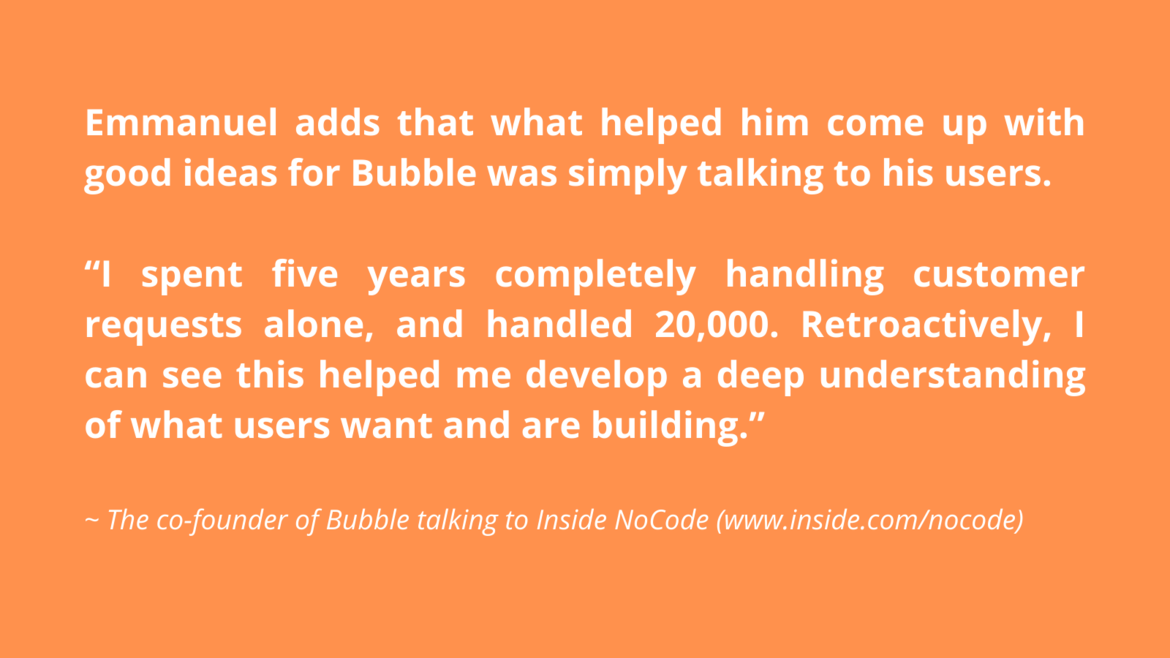
GROWTH AND SUCCESS TIPS:
As I know so many of you guys are trying to create your own successful no-code businesses or initiatives, with some of you even creating your own no-code tools, I had to ask Emmanuel to offer some tips! Here's what he had to say based on his experiences as a successful no-code tool creator, who has also seen several companies achieve success using his platform.
Growth tips for both no-code business creators and those building no-code tools:
Relying on the community is key — both the tech community and the one you’re building for your product, Emmanuel notes.
“Bet on your community as much as possible. Rely on the community for help — that’s the only way to scale: ask questions on the forums, get coaching if needed [and so on].”
At the same time, engage your users through different channels while generating excitement around your project.
“Bubble’s grown a lot so far by testing different channels, and by creating a product people became fanatics about that inspired a very deep emotional connection. It can take a lot of time.”
Emmanuel adds that what helped him come up with good ideas for Bubble was simply talking to his users.
“I spent five years completely handling customer requests alone, and handled 20,000. Retroactively, I can see this helped me develop a deep understanding of what users want and are building.”
Tips for no-code business creators specifically:
Before building, make sure your product has solid foundations, Emmanuel emphasized.
“It’s about finding the right tool. Investigate the different tools to figure out exactly what you want. Ask the no-code community on Twitter for help, or the likes of Makerpad.”
Emmanuel says it’s especially important to think of the future while selecting the tool, however. “You’ve got to think 18 months from now on.”
After you’ve found the tool, Emmanuel advises setting aside time to truly learn it as well.
“Don’t jump too quickly into building because you could be screwing yourself over long-term.”
Tips for people specifically building no-code tools:
The “fake it until you make it” saying so commonly expressed in Silicon Valley is “very dangerous advice in no-code,” Emmanuel warns no-code tool creators.
“Be extremely straightforward and honest with what people can do with your tool,” he advises. “Misleading people about what they can do with your tool will only backfire in terms of growth.”
He continues, noting he’s seen several no-code tools mislead customers about what their products can truly do, which concerns him. “It hurts the no-code space,” he warns. “There is already a lot of skepticism from the tech community and engineers about no-code, and it just makes no-code appear illegitimate.”
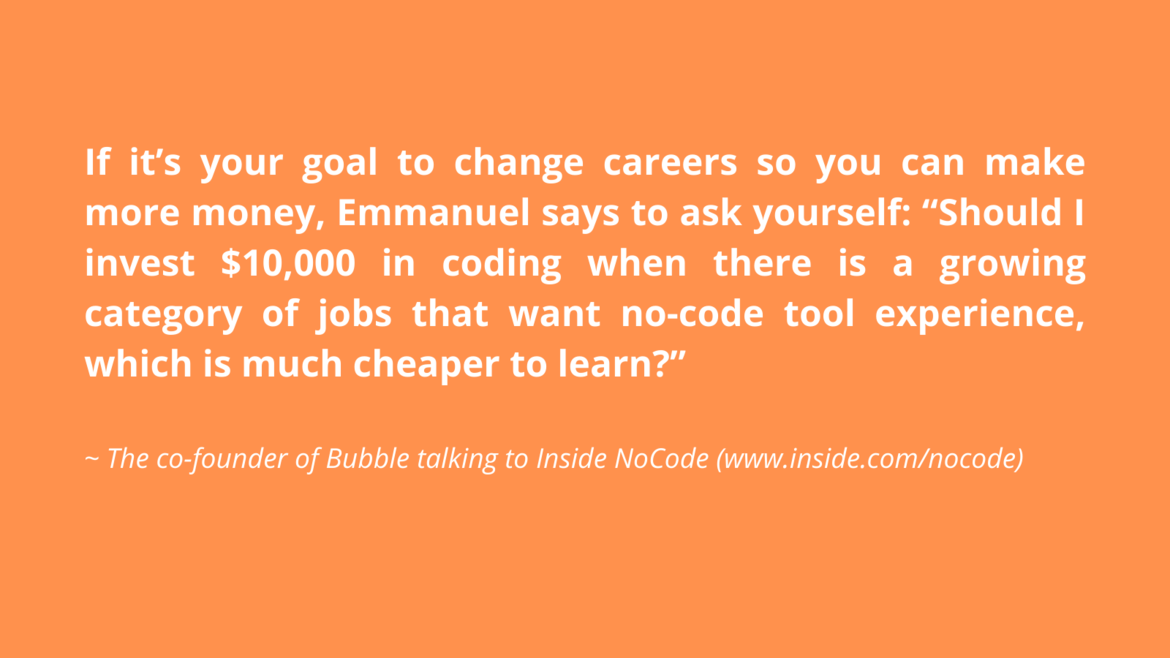
NO-CODE AND WEB DEVELOPMENT:
I also know some of my Inside NoCode readers are, in fact, developers who rely on low-code and no-code tools as a part of their work. For you guys, I had to ask Emmanuel about no code's impact on the industry, and his advice for those aspiring developers (or current) interested in programming or attending web development bootcamps.
What would you say to web developers worried about no-code tools taking away their jobs or hurting their prospects?
“What engineers want is leverage. No-code is a way for engineers to do more in less time — see that as an opportunity.”
Emmanuel adds that he sees no-code as a “continuation of software development,” noting that no-code tools have actually been around for a while.
With no-code, engineers can focus on “higher levels of abstraction,” and thus don’t need to work on “boring, repetitive tasks” thereby “wasting their talent.”
“Engineers should be excited about no-code. They can focus on more complicated problems.”
Plus, Emmanuel adds: engineers should not worry about no-code as “there will always be a job for developers.” Tech, and thus code, will become more complicated and will require engineers who can work on those higher-level tasks.
What kind of advice would you give those interested in attending, or who are currently in, a web development bootcamp given no-code is rendering so many "simpler" tasks junior developers once did obsolete?
Ask yourself, Emmanuel says: “What do you want to achieve with this bootcamp?”
“If it’s your goal to build a product, don’t waste time learning JavaScript," he advises.
If it’s your goal to change careers so you can make more money, Emmanuel says to ask yourself: “Should I invest $10,000 in coding when there is a growing category of jobs that want no-code tool experience, which is much cheaper to learn?”
The demand for no-code tool experience is growing fast, he notes, pointing out how many jobs he saw that asked for Bubble experience while browsing freelancing platforms like Upwork before the interview.
For those actually studying computer science, "continue crafting code for more complicated things," he says, noting that there will continue to be an increasing demand for that kind of work.
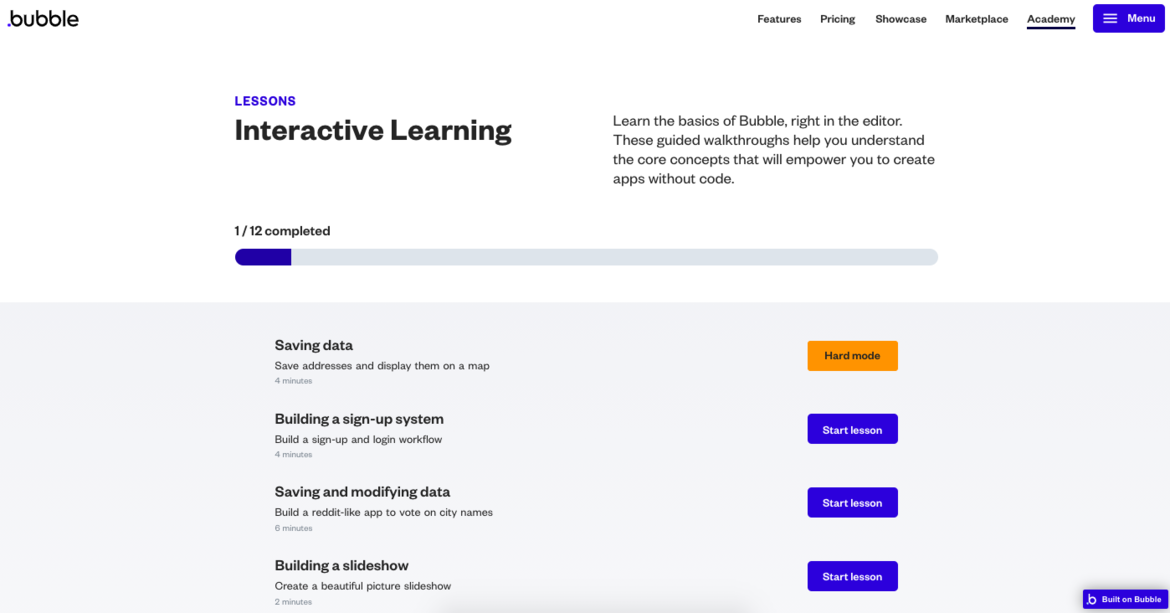
ON LEARNING BUBBLE:
Bubble may be quicker to learn than, say, JavaScript, but there's still a learning curve, I said to Emmanuel, asking him to comment on that and offer advice.
"All great things take time," Emmanuel pointed out. "No pain, no gain. Learning Bubble is worth it particularly because of our flexibility. We are open-ended."
This is one of the reasons he's not actually a fan of the term "no-code."
"I prefer visual programming because there is still some coding involved. Our goal is more to make code not necessary for 80-90% of use cases. If you can learn Excel, you can learn Bubble."
When I asked for tips about how to successfully learn Bubble and resources he could recommend, Emmanuel replied, "For Bubble, do the lessons twice! (at bubble.io/lessons). It shows you where to click, and then the second time the arrows disappear. Our analytics are clear, it's a great way to learn!”
In addition to Bubble's own tutorials, he also recommended Makerpad for further help, which he believes is the "strongest" educational resource currently out there for no-coders.
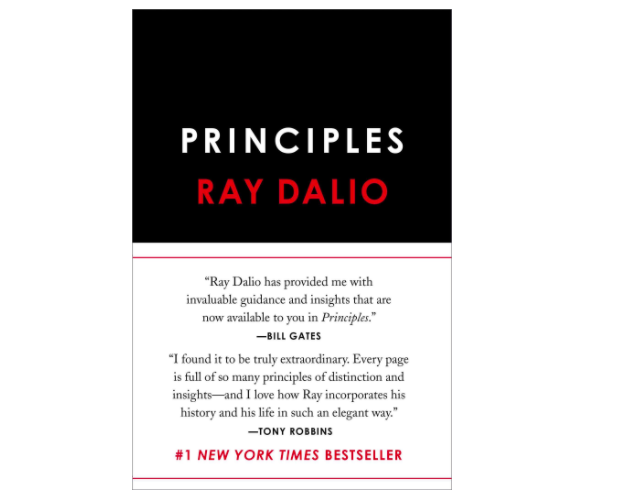
ON WHAT INSPIRES HIM:
What does a successful no-code tool creator like Emmanuel do daily that inspires his ideas?
Reading, Emmanuel told me — and listening.
“I’ve been reading business books much more,” he says. “It’s something I wasn’t doing before and it’s provided inspiration.”
Asked what business book he’d recommend, Emmanuel responded, “Principles: Life and Work” by the founder of Bridgewater Associates, where Bubble co-founder Josh Haas used to work as a manager.
In terms of what helps him come up with ideas for Bubble, Emmanuel again pointed to past conversations with users when he spent five years doing customer success.
Talking directly to users so frequently helped him develop a deep understanding of what they wanted and what they were like, which has made it very easy to come up with feature ideas that do well.
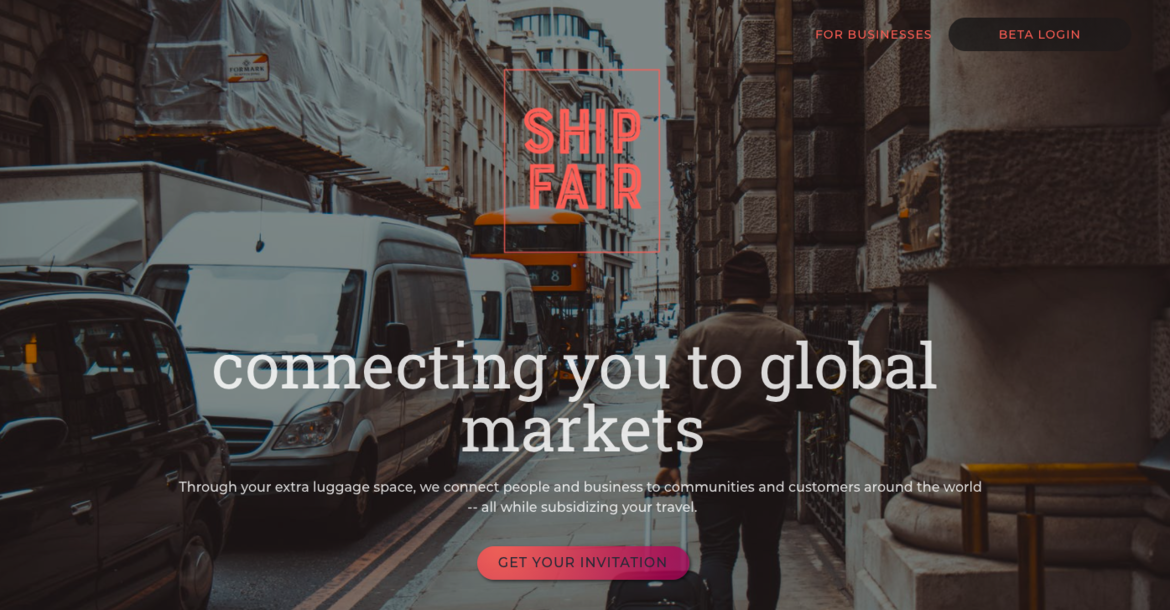
HIS FAVORITE BUBBLE PROJECT FROM 2020:
When I asked him what his favorite Bubble project was, Emmanuel noted it's difficult to point out just one as there are so many good ones out there.
“There are so many projects now that I’ve lost track of them,” he admits.
However, there was one, at least, that did come to mind.
“One that stands out simply because I spent a lot of time looking at it recently is from a founder in the Immerse program,” says Emmanuel, referring to the free pre-accelerator for BIPOC founders to turn business ideas into MVPs. “She [Nicole Bestman] created a platform where people can rent out some space in suitcases," which he notes is something she was in a unique position to create because of her own knowledge of the West African community's needs.*
*According to Bubble's blog post published later about Bestman's project and others in the Immerse program, Bestman created the product after noting a "market inefficiency in international shipping that prevented small-batch producers from reaching customers abroad." Using her previous experiences working with West African government trade authorities, Bestman was able to thus create a platform that "formalizes informal shipping" while "adding security guardrails to build trust for each stakeholder."
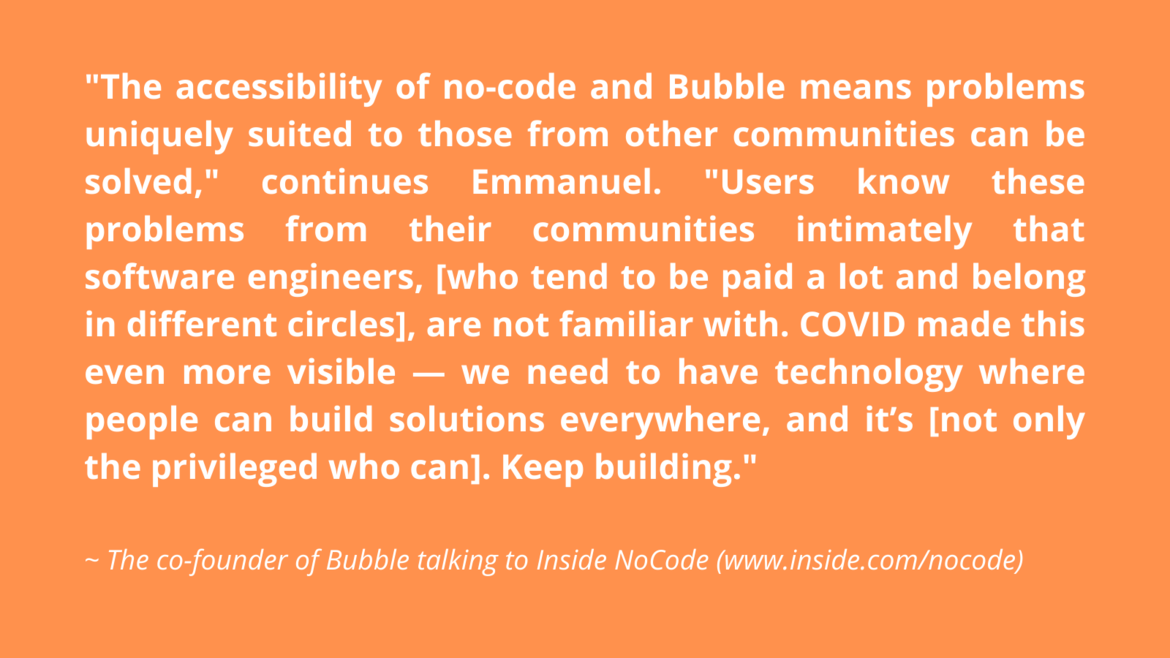
FINAL THOUGHTS: NO-CODERS ARE CRUCIAL FOR A MORE DIVERSE WORLD
At the end of the interview, I asked Emmanuel for his final thoughts and tips he could offer no-coders.
According to Emmanuel, no-code and Bubble are so important precisely because of diversity.
No-coders need to start building, he says, because "software engineers are fixing rich people problems."
"The accessibility of no-code and Bubble means problems uniquely suited to those from other communities can be solved," continues Emmanuel. "Users know these problems from their communities intimately that software engineers, [who tend to be paid a lot and belong in different circles], are not familiar with. COVID made this even more visible — we need to have technology where people can build solutions everywhere, and it’s [not only the privileged who can]. Keep building."
